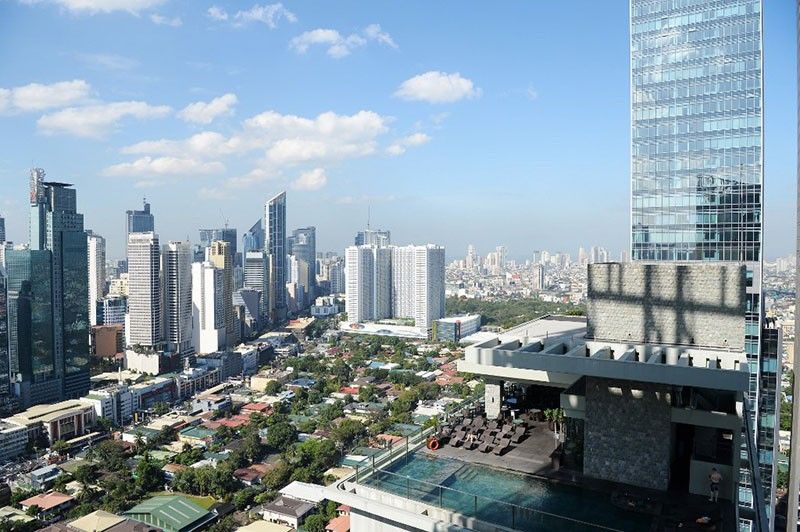Enhancing infra partnerships for the Philippines and the Indo-Pacific

Complex security risks affect the stability and peace of the Indo-Pacific, including those that arise from the lack of critical infrastructure and from exposure to vulnerabilities.
While current and future initiatives on infrastructure enhance connectivity, efficiency, and economic growth, they also contribute to the region's geopolitical environment. To demonstrate, major powers such as the United States and China introduce various initiatives on infrastructure that cover states in the Indo-Pacific, and engagements among state leaders regularly include agreements on this sector.
A key initiative is the Indo-Pacific Economic Framework for Prosperity (IPEF) by the United States which covers building sustainable and durable infrastructure that will expand economic and trade activities among participant states.
As one of its initial partners, the Philippines under President Ferdinand "Bongbong" Marcos Jr. expressed continued involvement in the IPEF. In September 2022, Trade Secretary Alfredo Pascual met with US Commerce Secretary Gina Raimondo, and they agreed to pursue key investments in power generation, mineral processing, and infrastructure in the Philippines.
IPEF initiatives have the potential to contribute to the infrastructure goals of the Philippines, which is one of the priorities of President Marcos Jr. This was made clear during his first State of the Nation Address in July 2022, wherein he described infrastructure as the country's economic backbone.
Capitalizing on the gains of the "Build, Build, Build" projects of the previous administration, the "Build Better More" infrastructure initiatives were introduced, to which public-private partnerships are expected to contribute significantly.
Support for the expansion of infrastructure projects and partnerships was highlighted during the forum organized by Stratbase ADR Institute and the US Embassy in the Philippines entitled "The Geopolitics of Infrastructure: Opportunities and Challenges for the Philippines and the Indo-Pacific." Representatives from the public and private sectors shared their thoughts on the opportunities for cooperation to address the gaps in infrastructure.
Undersecretary for Road Transport and Infrastructure Mark Steven C. Pastor emphasized several transportation and infrastructure projects the Department of Transportation spearheads. He says that modernization efforts under the Build Better More projects have attracted the participation of more investors from various countries.
To support its initiatives, the Department of Transportation looks into collaborative partnerships among government agencies, both locally and internationally, as well as partnerships with the private sector. Usec Pastor added that the department is keen on these partnerships as it leads to successful and long-term partnerships with various international entities and governments.
According to former Public-Private Partnership Center Executive Director and Aboitiz InfraCapital President and Chief Executive Officer Cosette Canilao, high-quality infrastructure promotes productivity and inclusive growth as well as improves trade and connectivity.
Given that infrastructure projects are only one of the several priorities of any government, persistent underfunding, she adds, hampers economic progress and exposes business communities to significant risks. To address this, Ms. Canilao says that private sector participation in government infrastructure projects is beneficial.
Coco Alcuaz, executive director of the Makati Business Club, underscored that the Marcos Jr.’s administration’s recognition of and openness to public-private partnerships allow further cooperation in the infrastructure space. Working on infrastructure also opens opportunities for collaboration with other countries and willing partners.
In addition to public-private partnerships in the local and international setting, public engagement is likewise essential, according to InfraWatch Philippines Convenor and Stratbase Non-Resident Fellow lawyer Terry Ridon.
As the public remains the main stakeholder in government projects, their involvement will largely contribute to the ongoing and future initiatives. In doing so, Ridon says that governments should never second-guess and underestimate public sentiment. Engaging the public will likewise improve levels of transparency and public participation in infrastructure development.
Overall, as the Philippines continues to invite more public-private partnerships in infrastructure development, it must ensure that projects ultimately respond to the interests of the Filipino public.
Furthermore, capitalizing on economic diplomacy with other states is expected to attract more foreign investments to spur the country's economic growth. Opportunities for infrastructure partnerships for the Philippines and the Indo-Pacific are vast; in doing so, participation in any extensive economic agreements must remain guided by the Philippines' independent foreign policy and national interests.
Alynna Carlos is a program manager at the think tank Stratbase ADR Institute.
- Latest





























